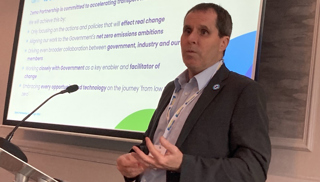The UK is on target to exceed the legal limits for four out of the five pollutants covered by the National Emission Ceilings Regulations 2018, according to new data.
The regulations set binding emission reduction targets for a number of harmful pollutants for both 2020 and 2030.
ClientEarth says the government-provided information is set to miss its 2030 emissions reductions targets by 57% for sulphur dioxide (SO2), 45% for fine particulate matter (PM2.5), 20% for ammonia and 20% for nitrogen oxidea.
The figures also suggest the UK has missed its 2020 emissions reductions targets by 12% for PM2.5 and 7% for ammonia, although final emissions data for 2020 will be reduced in 2022.
The new law now requires the government renews its strategy for rackling these pollutants within 18 months and if it fails to do this, it could face legal challenge.
Katie Nield, lawyer at environmental law charity ClientEarth, said: “Once again, the government is falling short of its legal obligations to reduce pollution.
“Ministers have been lauding the UK’s Clean Air Strategy as ‘world-leading’ but they are not living up to it.
“Now the government is under a legal obligation to revamp its strategy to tackle major emissions sources like road transport but also agriculture and domestic heating – people’s health is on the line.
“They are so far off track that a serious rethink is needed. The government should not have to be dragged to the courts yet again to force it to live up to legal commitments to clean up the air.”
Earlier this month, ClientEarth urged the government to implement clean air zones as quickly as possible after the Court of Justice of the European Union ruled the UK has “systematically and persistently” exceeded legal limits for nitrogen dioxide since 2010.
The court found the UK has also failed against its legal duties to put plans in place to tackle the problem in the shortest possible time.
Numerous cities had announced plans to introduce CAZs, but in April last year the Government announced their introduction would be delayed until after the UK overcomes the Covid-19 pandemic.
However, many areas are still putting proposals together, with Bristol City Council agreed its proposals for a CAZ earlier this month.
This would require drivers of all older, non-compliant vehicles to pay a daily fee to enter the zone.
For more on clean air zones and where they are being introduced, visit our interactive tool





















Login to comment
Comments
No comments have been made yet.